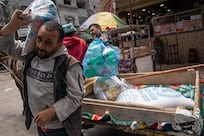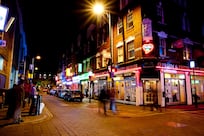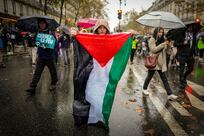Egypt's Sinai peninsula has long acted as the flashpoint for undercurrents at play in the wider region, a dynamic that is reflected in the escalating series of attacks by Islamist militants against Egyptian troops in the peninsula. This trend reached a new peak on Friday when more than 30 soldiers were killed in two attacks, the worst since Muslim Brotherhood president Mohammed Morsi was in office.
Egyptian president Abdel Fattah El Sisi responded by declaring a three-month state of emergency in the peninsula, a move that will include imposing a nightly curfew and ought to help bring greater stability. Before entering politics, Mr El Sisi was the military commander in the peninsula, so he is fully aware of the situation.
His actions to end this bloody internal insurgency deserve support, just as the attackers responsible for this latest attack warrant condemnation. A statement from the UAE Ministry of Foreign Affairs described the attack as a “heinous crime” and expressed its solidarity with Egypt and its armed forces. No group immediately claimed they were behind the suicide car bomb in El Arish, which was by far the deadlier of the two attacks on Friday, but it bears striking similarities to actions by Ansar Beit Al Maqdis, Egypt’s most active militant group. The group said it supports ISIL, the extremist faction that has overrun large areas in Iraq and Syria, but has not formed a formal alliance with it.
That helps explain the region-wide undercurrents at play in Sinai, and why the Egyptian government deserves support to prevail over the extremists. One reason why Mr El Sisi’s presidency has been welcomed in most of the Arab world and the international community at large is that he would be able to restore stability and allow Egypt to prosper.
A driving force in the Egyptian revolution – and in the Arab Spring generally – was the belief by average citizens that stagnating economies prevented them forging a decent living for themselves and their families. Reviving Egypt’s economy will address this legitimate concern, but that requires stability. That is particularly so for tourism, one of Egypt’s biggest foreign income earners. The southern Sinai peninsula was, along with the Nile river, the heartland of Egypt’s tourism industry but has, understandably, been devastated by the ongoing violence. We encourage Mr El Sisi to bring peace to Sinai, for the benefit of all Egyptians.





